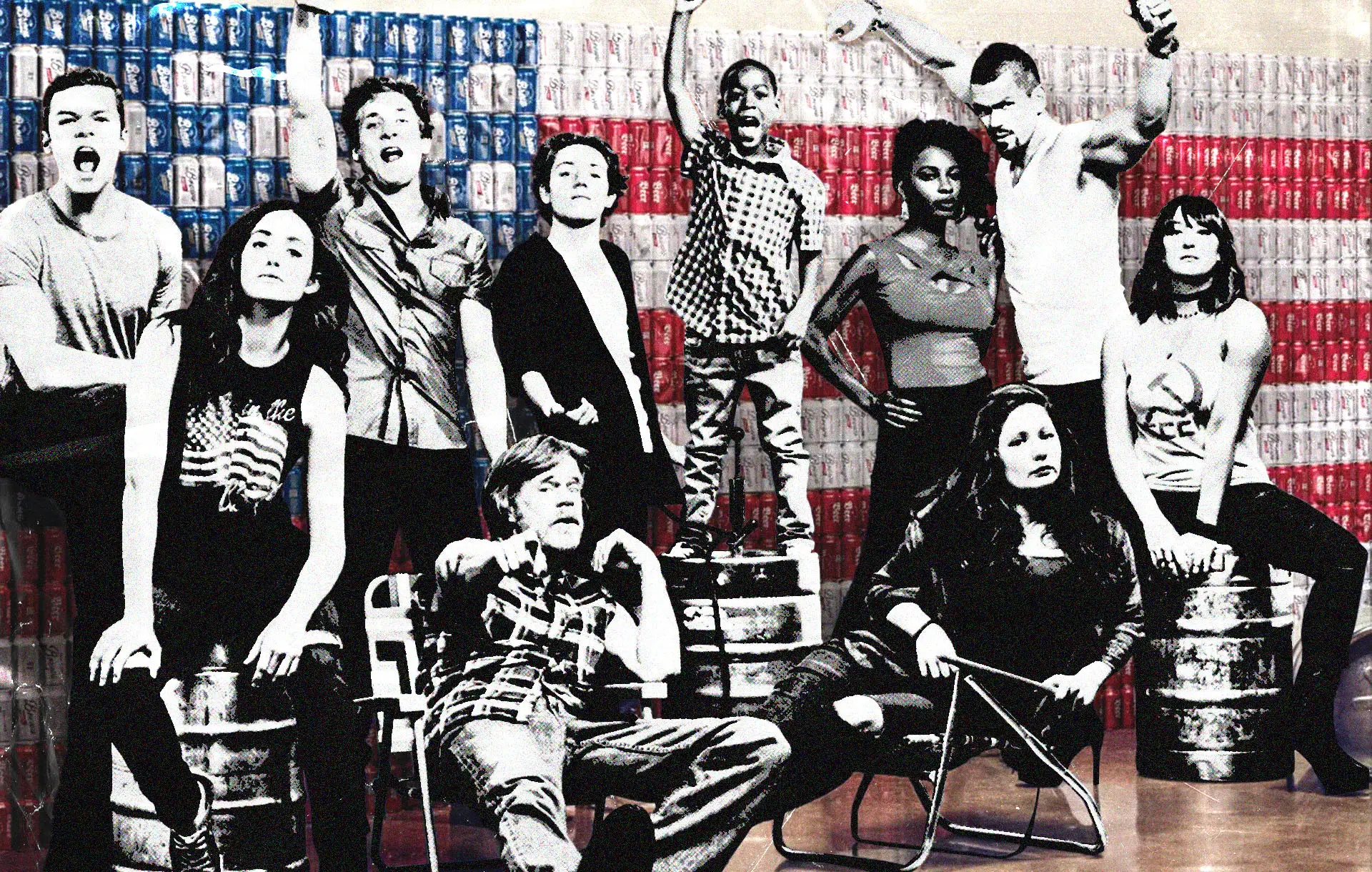While in many TV series poverty might feel like a very unpleasant condition, Paul Abbott’s Shameless (2011-2021) provided a distinctive perspective on this theme. Over its decade-long run, the show garnered acclaim for its entertaining depiction of a working-class family in the outskirts of Chicago. Originating in the UK, Shameless later served as the inspiration for the US adaptation analyzed in this article. Despite retaining its British humor, which may occasionally come across as insensitive or brash, the American version preserved a sharp satirical edge to it.
Shameless follows the Gallagher family, a dysfunctional group of siblings raised by their eldest sister, Fiona, due to their neglectful and alcoholic parents. The idea that poverty can be entertaining in such a dramatic scenario seems the most challenging part of the story, isn’t it? Yet, Paul Abbott’s creation, later developed and adapted by American producer John Wells, turned out to be the longest-running original scripted series in Showtime’s history.
The remarkable triumph of this show primarily stems from its daring decision to transform serious themes such as precariousness, scarcity, and privation into amusing situations. Simultaneously, even though the show elicits hearty laughter, it adeptly retains a critical perspective on the absurdities inherent in contemporary American daily life. Therefore, let’s delve deeper into the reasons behind the enjoyment derived from it.
Beyond the Shock Value
Beyond the first reaction of shock that Shameless might cause, the characters grapple with tangible challenges that are not readily relatable for all. Take Fiona, the eldest Gallagher sibling, who shoulders the responsibility of raising her siblings due to their parents’ neglect. Despite being designated as the matriarch of this dysfunctional family, Fiona is undeniably flawed. Her battles with addiction, impulsive actions, and self-destructive tendencies pose ongoing threats to both herself and her family.
These conflicting aspects make her so believable and human in her quest for some sort of stability that we can’t help but like her and cheer her up when she succeeds in keeping her family together. Also, Fiona and her siblings are masters in “the art of getting by”, and this is somehow very comforting too. They unintentionally teach us a lot about being content with what we have, especially in the face of things that are not essential.
Although being profoundly flawed, the Gallaghers also make a street-smart and close-knit group. As the characters find themselves in absurd situations, their resilience, acumen, and wit make them look incredibly resourceful in the face of adversity. And despite the chaotic narrative they are dealing with, the writers always manage to make them get back together as a team. This familial connection is useful in terms of alleviating the harsh reality of their financial challenges, generating a feeling of warmth and camaraderie.
poverty is not just a backdrop for comedy; it also provides social commentary on issues such as inequality, healthcare, and the challenges faced by lower-income families
With regard to the realism of the show, Shameless doesn’t shy away from depicting the harsh realities of other poor social units, and it does so in a way that feels authentic and relatable. This balance between harsh realism and relatability allows viewers to connect with the characters on a human level. In this regard, poverty is not just a backdrop for comedy; it also provides social commentary on issues such as inequality, healthcare, and the challenges faced by lower-income families. By addressing these issues through the lens of humor, Shameless encourages viewers to think critically about societal problems.
Throughout the show, the audience witnesses the characters’ growth and development, strengthening their personal bond with them. Despite their difficult circumstances, many characters strive for personal and professional improvement. For example, Lip, the smartest sibling, is strongly encouraged by family and acquaintances to pursue an academic career despite the harsh reality of their finances. This theme of resilience and the pursuit of a better life adds a layer of optimism to the narrative and makes the show stand out.
An Ode to Every Family
It is important to note that the enjoyment derived from watching Shameless does not diminish the real and serious challenges associated with poverty. The show’s success lies in its ability to balance humor with genuine criticism, providing viewers with a mix of laughter, empathy, and reflection. Frank Gallagher, the patriarch of the family, encapsulates this complexity, as he might look like a big mess at first. He is a narcissist and cares only about his next drink, often endangering his children to fulfill his own needs. But Frank is not just that man, he needs to be followed in his delirious path to be fully understood.
Despite facing financial hardships, the Gallagher family members support and care for each other, and they are still there to get Frank out of trouble, no matter what. The sense of unity and love within this group adds a positive and heartwarming element to the entire story. Plus, making them display their family’s dirty laundry in public is so liberating. Shameless is an ode to harmony and destruction, an ode to every family.




